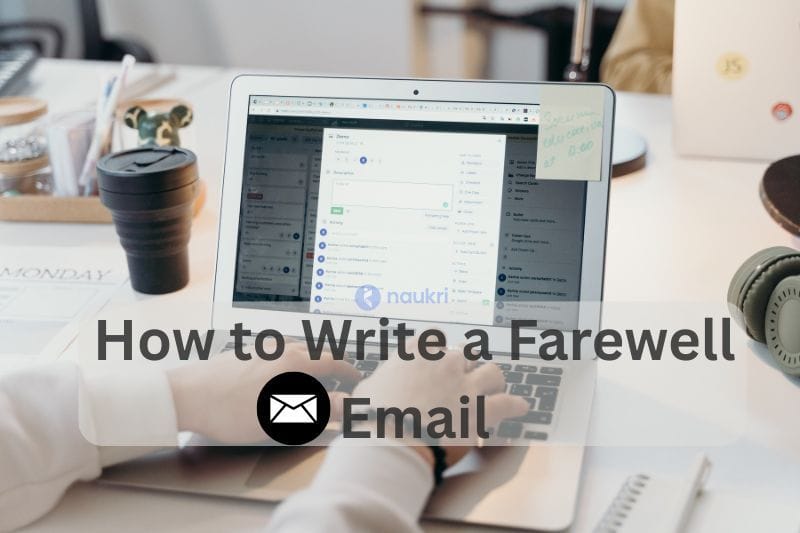Crafting the Perfect Farewell Email to Colleagues
Saying goodbye to colleagues is a bittersweet moment. You want to express your gratitude, share some fond memories, and leave a lasting positive impression. This guide provides you with everything you need to write a heartfelt and effective farewell email, including sample emails, templates, and tips.
Why a Farewell Email Matters
A farewell email is more than just a formality. It’s an opportunity to:
- Express your appreciation for your colleagues’ support and collaboration.
- Maintain professional relationships for future networking.
- Leave on a positive note, reinforcing your professional reputation.
- Share your contact information for those who wish to stay in touch.
Table of Contents
- Farewell Email Samples
- Heartfelt Goodbye Messages
- How to Write a Farewell Email
- Farewell Email Templates
- Tips for a Touching Message
- FAQs
Farewell Email Samples
Here are several farewell email samples tailored for different situations. Feel free to adapt them to your specific circumstances and personal style.
Sample 1: Formal Farewell Email
This sample is suitable for larger teams or when you want to maintain a professional tone.
Subject: Farewell and Thank You
Dear Team,
As I conclude my time at [Company Name], I want to express my sincere gratitude to each of you. The past [number] years have been incredibly rewarding, and I’m proud to have worked alongside such dedicated professionals.
I’m moving on to a new opportunity in [City/Company], but I will always cherish the learning and memories created here. You can reach me at [your email address].
Wishing you all continued success,
Sincerely, [Your Name]
Sample 2: Informal Farewell Email
Use this sample for close-knit teams where you have a more personal relationship with your colleagues.
Subject: So Long, Farewell!
Hi Team,
It’s hard to believe, but today is my last day at [Company Name]! It feels strange saying goodbye to a place that’s been such a big part of my life for the past [number] years.
I’m moving on to a new role next week, but I’ll genuinely miss working with all of you. You can always reach me at [your email address]. I’d love to stay in touch.
Thanks again for everything,
Best, [Your Name]
Sample 3: Short and Sweet Farewell
Sometimes, less is more. This sample is perfect for a quick and heartfelt goodbye.
Subject: Goodbye and Thank You
Hi everyone,
Just wanted to let you know that today is my last day at [Company Name]. Thank you for all the support and good times. It’s been a pleasure working with you all!
Feel free to connect with me on [LinkedIn profile URL].
All the best, [Your Name]
Touching Goodbye Message to Colleagues
Sometimes, a few heartfelt lines are enough to express your gratitude and bid farewell. Here are some examples of touching goodbye messages you can share via chat, card, or group thread.
Example 1: The Gratitude Message
Dear team, I may not have always been the loudest voice, but I always felt supported here. You helped me feel comfortable in a new and challenging environment. I will always remember how you made it feel less daunting.
Example 2: The Home Away From Home Message
Hi, everyone. There were days I stayed late and days I wanted to leave early, but what kept me going was the people. This place became a kind of rhythm in my life. It won’t be easy to find this kind of team again.
Example 3: The Hard to Say Goodbye Message
My dear colleagues, I have been thinking about what to say all morning, and I still don’t know how to put it into words. Just… Thank you. For everything. You all have been part of my routine, and I will miss that more than I thought.
How to Write a Farewell Email to Colleagues
Writing a farewell email can be daunting, but it doesn’t have to be. Here’s a step-by-step guide to crafting a memorable and meaningful message.
1. Start with a Clear Subject Line
Your subject line should be concise and clearly indicate the email’s purpose. Here are a few examples:
- “My Last Day at [Company Name]”
- “Goodbye and Thank You”
- “Farewell – It’s Time to Say Goodbye”
- “Moving On – A Note of Thanks”
2. Open with a Direct Line
Get straight to the point. Let your colleagues know that you’re leaving and mention your last working day.
Example: “Today is my last day at [Company Name]. It’s not easy to write this, but it feels right to say goodbye properly.”
3. Thank the People
Instead of generic platitudes, express genuine gratitude to specific individuals or teams. Highlight their contributions and the impact they had on your experience.
Example: “Thank you to the marketing team for your creativity, and to John for always being a supportive mentor.”
4. Share a Memory or Moment
Recounting a specific memory adds a personal touch and makes your message more relatable. It shows that your time at the company meant something to you.
Example: “I still remember my first week when I was completely lost, and Sarah patiently walked me through the new software.”
5. Mention What’s Next (Optional)
Sharing your future plans is optional, but it can provide closure and allow colleagues to stay connected with you professionally.
Example: “I’ll be joining a tech startup next week – something new and exciting.” Or, “I am taking a short break to reset before deciding what comes next.”
6. Add Contact Details
Include your personal email address or LinkedIn profile if you’re open to staying in touch.
Example: “You can always reach me at [your email address] or connect on LinkedIn.”
7. End with a Warm Sign-Off
Conclude your email with a positive and sincere closing. Avoid clichés and speak in your own voice.
Examples: “Thanks again for everything. I will miss this place.”, “Wishing you all the best – at work and beyond.”, or “Take care and keep in touch.”
Farewell Email and Message Templates for Colleagues
These templates can help you craft a thoughtful and clear farewell message, even when you’re short on time or inspiration.
Template 1: Farewell Email Template
Subject: Thank You and Goodbye – My Last Day at [Company Name]
Dear [Team/Colleagues/Department Name],
As many of you know, [date] will be my last working day at [Company Name]. After [X years/months] here, it’s time for me to take the next step in my journey.
I want to thank each one of you for the support and shared memories along the way. Working with [mention team name or specific people] has made me a better person, both personally and professionally.
I have learned a lot and will carry these experiences forward with me.
If you would like to stay in touch, you can reach me at [personal email] or connect with me on LinkedIn: [LinkedIn URL].
Wishing you success and many great milestones ahead.
Warm regards, [Your Full Name]
Template 2: Goodbye Message Template
Hi [Name/Team],
Just a quick note to say goodbye, and thank you for everything. It has been great working with you at [Company]. I will miss each and everyone one of you.
Feel free to stay in touch at [your email].
Take care, [Your Name]
Tips to Write a Touching Farewell Message to Colleagues
Here are some additional tips to make your farewell message more personal and impactful:
- Start with how you are feeling, not just a formal goodbye.
- Use their names if you know them well.
- Refer to a specific moment that meant something to you.
- Mention something small you will actually miss.
- Speak like you are talking in person.
- Use pauses and line breaks intentionally.
- You don’t need to explain everything.
- Leave space for silence.
- A little awkwardness is fine; that’s what makes it feel real.
- Humor works if it is your style.
FAQs
Q. Farewell notice vs. farewell email – What’s the difference?
A farewell notice is usually formal and sent by HR or management, while a farewell email is personal and written by you.
Q. What to include in your farewell email?
Your farewell email should be clear and include all the right elements. Here are the key parts of a farewell email:
- Your last working day
- A short thank-you to the team or specific people
- One genuine memory or takeaway
- Optional next step (new role or break)
- Contact details (if you want to stay in touch)
- A warm closing line and your name
Q. What not to include in your farewell email or message?
Keep your message respectful and clean by avoiding things that could make others uncomfortable or awkward.
- Complaints about the company or coworkers
- Long explanations for why you are leaving
- Salary, benefits, or internal issues
- Personal grievances or past conflicts
- Overly emotional rants or dramatic language
- Criticism masked as “feedback”
- Private jokes that others may not understand
- Anything negative about future plans or roles
Q. Should I send separate farewell messages to different teams?
Yes, if you’ve worked with multiple teams, it’s thoughtful to write separate messages. Keep the core message similar but tailor a line or two to reflect your experience with each team. It makes your goodbye feel more personal and genuine.
Q. Is it okay to skip writing a farewell message?
It’s not mandatory, but a short farewell message is always appreciated. Even a simple note shows respect for your time at the company and leaves a positive impression. It also gives people a chance to say goodbye and stay connected.
Q. When to send a farewell email or a goodbye message to colleagues?
The best time is on your last working day, a few hours before logging off. If you’re close to some people, you can message them earlier. Just make sure it’s not too early – wait until your departure is officially communicated.
Wrapping Up
Writing a farewell email or goodbye message to colleagues is an opportunity to express your genuine feelings and leave a positive lasting impression. By following these tips and using the provided templates, you can craft a message that is both heartfelt and professional. Remember to say what you really feel, not just what sounds good. A single honest line will always mean more than a long paragraph. All the best for whatever comes next!
Farewell Notice vs. Farewell Email
| Point | Farewell Notice | Farewell Email |
|---|---|---|
| Who sends it | HR or reporting manager | The employee who is leaving |
| Tone | Formal | Personal or emotional |
| Purpose | To inform others about your exit | To say goodbye and thank your coworkers |
| Audience | Entire department or company | Team, colleagues, or close contacts |
| Style | Brief and structured | Flexible, based on your personality |






